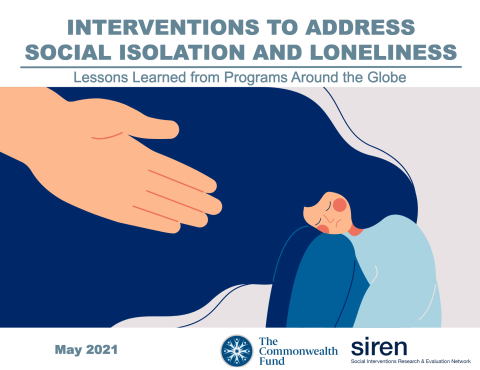Long before the COVID-19 pandemic began, public health leaders in the United States recognized the importance of addressing social isolation and loneliness as a strategy for improving health. The COVID-19 pandemic has accelerated isolation globally by decreasing in-person interactions.
Social isolation refers to the objective infrequency or lack of social contact, while loneliness refers to the subjective feeling of being lonely or socially isolated. A large body of evidence demonstrates that social isolation and loneliness, are associated with a variety of adverse health outcomes, including cardiovascular disease, mental illness,and overall mortality. Socially isolated older adults also account for an estimated 6.7 billion in additional Medicare spending annually when compared to those with social connections.
